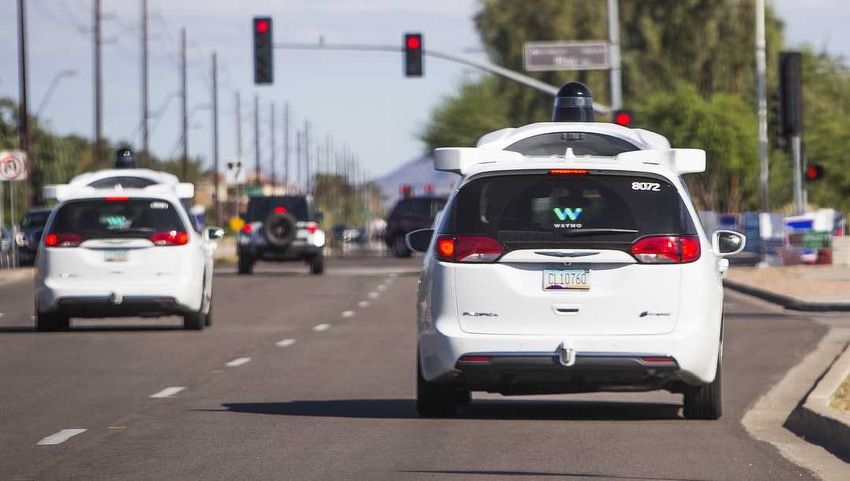AI in logistics: five short use cases
August 19, 2019

From Ocado to Rolls Royce, the world of logistics is changing at an incredible speed
by Sergey Lypchenko 19 August 2019
Artificial intelligence is changing
the world, by making it possible to automate countless industries. Nowhere is this
impact felt as strongly as in the logistics industry, where AI applications are
quickly becoming the standard, rather than the exception.
According to McKinsey, logistics
companies stand to gain from $1.3 trillion to $2 trillion per year in economic
value due to AI integration into manufacturing processes and supply chains.
This article describes five
ways AI is being deployed in the logistics sector, identifying the companies
that are already using it for their benefit.
Automated warehousing
Warehouse operations are becoming
automated - everything from data collection to inventory management can be done
by machines. AI is used to predict product demand, so deliveries can be
arranged in exact quantities, and transportation expenses and other costs can
be reduced.
Online British supermarket Ocado
has created an AI-assisted robot which fulfils about 65,000 orders in a week.
The robot is moving, lifting, and sorting out grocery items across its
warehouses. Human workers just package the selected products, and time for
order fulfilment is reduced substantially.
Self-driving vehicles
The transportation sector is
being transformed by AI. Self-driving vehicles can be used to deliver products
from point A to point B, improving supply chains and reducing expenses.
Human drivers can be
present in the cab to control the process – indeed, some countries are even
enacting laws concerning the mandatory presence of a driver in a cab.
At the end of 2018, Google spin-out Waymo became the first company to launch a commercial
self-driving taxi service. The service was launched in Phoenix, Arizona, and
was extended to California earlier this year. The company plans to build
autonomous trucks, hoping to make them safer and cheaper than human-driven counterparts.
Meanwhile, the famous luxury
car manufacturer Rolls-Royce is working
on building self-driving ships. It has launched Intelligence Awareness system for
vessels in 2018 that can identify various objects in the water, select an
optimal route, and monitor the condition of the engine. It will help shipping
companies increase their delivery speed. According to Markets & Markets, the
market for autonomous vessels is expected to reach $13.8 billion by 2030.
Smart roads
Apart from driverless
technology, cars can be equipped with other smart tools. Some companies have
started specializing in the development of smart roads – equipped with solar-powered LED lights. These
not only serve as lights at night, but also alert drivers about changes in road
conditions. They can even heat the road to avoid dangerous conditions in
winter. Therefore, vehicles can avoid delays because of the weather.
Integrated
Roadways has launched a
Smart Pavement System, and now testing it in the state of Colorado. The system connects
vehicles to the Internet, with drivers receiving notification about things like
traffic jams, accidents, and so on, helping them choose an optimal route.
AI in back office
operations
Back office operations are
not less important in logistics than transport. Artificial intelligence and
robotic process automation (RPA) can help human employees improve the quality of
their work. Robots assistants may replace some humans in performing monotonous
tasks, leading to reduced expenses and improved accuracy.
RPA
vendor UiPath claims its software robots can often take over99 percent of back office operations due to their
advanced intelligence system. Its robots may read contracts and identify
clauses that are controversial and or may lead to large losses. When used by lawyers,
for example, it helps avoid mistakes that could have cost thousands of dollars.
According to LawGeex study, the accuracy level of AI-based contract review is
94 percent whereas the accuracy of human lawyers is about 85 percent.
Customer experience
AI can help businesses improve
customer experience and attract new customers. For example, DHL cooperates
with Amazon - if you use Alexa, you can ask it about your parcel and Alexa will
provide you with all the details regarding its location, delivery time, and so
on.
As the abovementioned examples illustrate,
the use of AI in logistics can take service quality
to a new level. If you need to improve your logistics operations, consider some
of the new and innovative options - just don’t forget to test how customer
experience is changing when you apply AI.
Sergey Lypchenko is a technical writer at Cleveroad, a web and mobile app development company located in Eastern Europe. His mission is to find interesting stories about innovations in the world of IT.
About the Author(s)
You May Also Like
.jpg?width=700&auto=webp&quality=80&disable=upscale)
.jpg?width=700&auto=webp&quality=80&disable=upscale)
.jpg?width=700&auto=webp&quality=80&disable=upscale)
.jpg?width=300&auto=webp&quality=80&disable=upscale)
.jpg?width=300&auto=webp&quality=80&disable=upscale)
.jpg?width=300&auto=webp&quality=80&disable=upscale)

